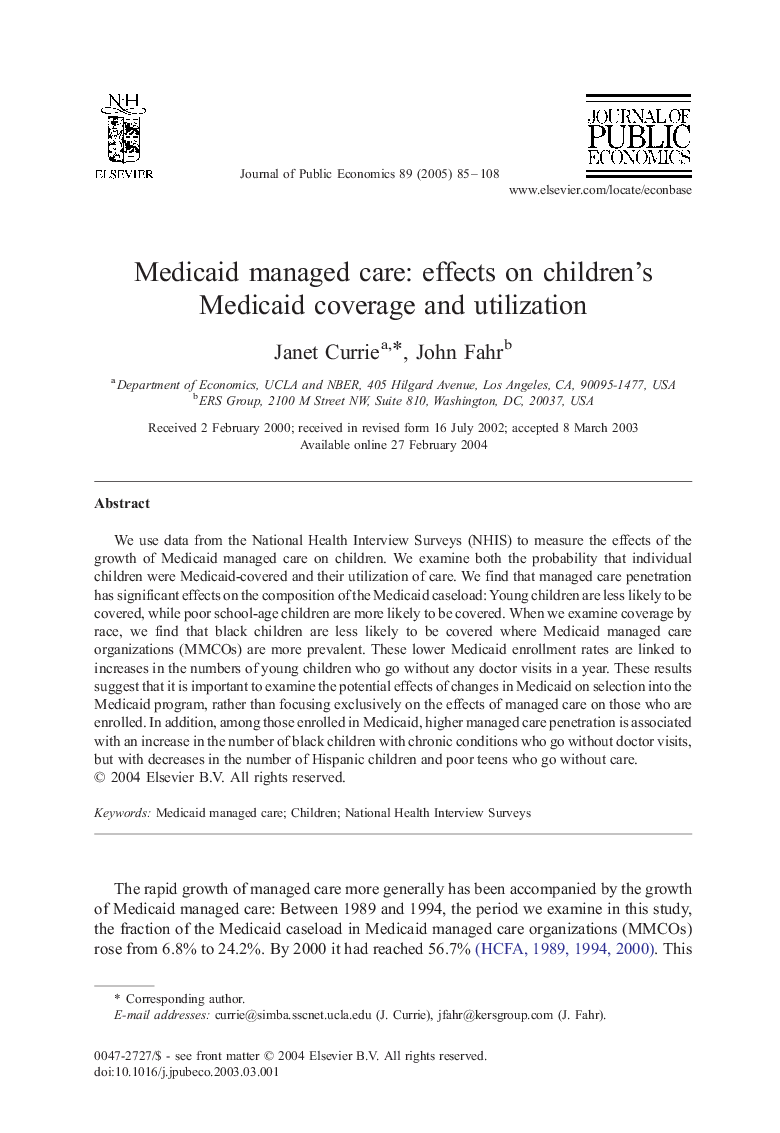| Article ID | Journal | Published Year | Pages | File Type |
|---|---|---|---|---|
| 10479587 | Journal of Public Economics | 2005 | 24 Pages |
Abstract
We use data from the National Health Interview Surveys (NHIS) to measure the effects of the growth of Medicaid managed care on children. We examine both the probability that individual children were Medicaid-covered and their utilization of care. We find that managed care penetration has significant effects on the composition of the Medicaid caseload: Young children are less likely to be covered, while poor school-age children are more likely to be covered. When we examine coverage by race, we find that black children are less likely to be covered where Medicaid managed care organizations (MMCOs) are more prevalent. These lower Medicaid enrollment rates are linked to increases in the numbers of young children who go without any doctor visits in a year. These results suggest that it is important to examine the potential effects of changes in Medicaid on selection into the Medicaid program, rather than focusing exclusively on the effects of managed care on those who are enrolled. In addition, among those enrolled in Medicaid, higher managed care penetration is associated with an increase in the number of black children with chronic conditions who go without doctor visits, but with decreases in the number of Hispanic children and poor teens who go without care.
Keywords
Related Topics
Social Sciences and Humanities
Economics, Econometrics and Finance
Economics and Econometrics
Authors
Janet Currie, John Fahr,
